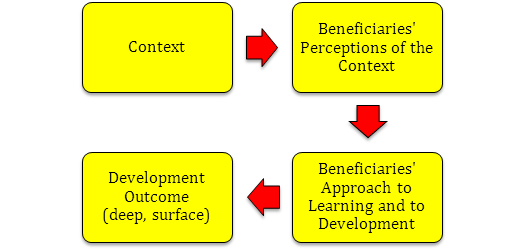An interview with Theresa.
Lingwei: What are the learning approaches you think important for secondary school students?
Theresa: I think they need to be engaged, motivated, to have choices built in time tables. So they can choose subjects they enjoy. Choices are really important. I think if you can help students to be engaged, motivated, we need to start learning building independent learning skills in secondary. So the students are not quite dependent on their teachers. But I think it needs to be done in an appropriate way. Some good teachers are doing these. But some teachers who are lazy can just let the students do reading in class. I mean, that’s not helpful. They should have given them this homework before they come to school. We need to build independent learning skills, but not be in an inappropriate way. We should also build collaboration. If we build these in choice that helps students to be focused, be motivated in subjects they choose. I think that helping stduents for taking responsibility also helps them to train them for the future. But I think also, it helps them in what they are doing in the class.
Lingwei: We have been to Varndean School, which is exactly like what you said. I was shocked by the way they arrange classes. Students have all kinds of subjects as well as activities to choose from. The students are feeling resiponsible, they feel they are part of the school cluture. The girl who took us for the school tour, was consistantly looking at her watch, trying to measure the time.
Theresa: See…That’s another way the students are getting involved. The school ask students to take part in the school tour, instead of doing these by the teachers. They are trying to help the students to be part of this school. Helping them to feel more responsible and engaged.
Lingwei: Yeah. Most of the time in China, the school headmaster might do it by himself or herself. Although it’s a way of showing respect for the coming visitors, it might be a different way for visitors to know about the real school. It might be very different from the headmaster’s view and the students’ view in seeing things. Sometimes, it might be totally different.
Theresa: And I think often the sudents are happier asking questions with their peers than asking a teacher or an adult. I think that’s why collaboration works, because when you don’t understand, you ask question.
Lingwei: Another question. How do teachers help students in secondary schools for assessments?
Theresa: That’s a good question. I’m not sure I can answer that. I would say, for example, using practice tests, doing formative assessments. The students are prepared, because they know what they are look like, they know what the strategies are. I think there will be a lot of strategy training. I know most schools give students cryteria. So that is to say, in order to get 80%, you do these; 70%, you do those; etc. So the teachers, again, are helping independent learning. They would say, well, think about, maybe if you got 40 last time, look at 50, and try to do that. If you are ambitious, and you find you can reach 80 or 90, just go for that. Students kind of gear that revision towards acheieving, so they very much know what they are trying to do. I don’t know if that’s motivated, but they know what they need to do to pass or to do well, or how not to fail. So they are quite directed.
Lingwei: So the teachers will give students a form or list before they start. The students can decide where they can go and how they are going to do that.
Theresa: Right. Take my daughter for example. She had 6 or 7 subjects. She was given different for the different grades. And she would go like say, I really want to get that. Have I done this? Have I achieved this? And I think for certain kinds of students, that’s really helpful. If some students, they might feel they are failing, as least it shows you not to fail it, you need to do this. We do this here as well. It’s all part of that kind of giving students the tools and information they need to help themselves. I think that’s a really big thing to learn independent learning in secondary school as well.
Lingwei: Thank you very much for your time. What you told me definitely helps us a lot. Thank you very much.
Theresa: You’re welcome. I’m glad I can help.







